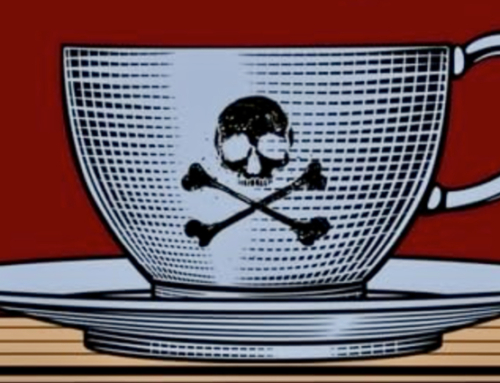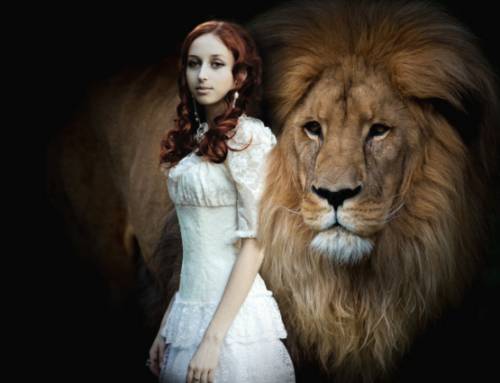 Michael Chabon’s instinct is spot on. In his essay, “Trickster in a Suit of Lights–Thoughts on the Modern Short Story,” from his 2008 collection, Maps & Legends: Reading and Writing Along the Borderlands, he makes the case for a literature that does not despise to be entertainment, that challenges the hegemony of “literary fiction,” that seeks to inhabit the borderlands between high art and low genres such as sci-fi, horror, and the western.
Michael Chabon’s instinct is spot on. In his essay, “Trickster in a Suit of Lights–Thoughts on the Modern Short Story,” from his 2008 collection, Maps & Legends: Reading and Writing Along the Borderlands, he makes the case for a literature that does not despise to be entertainment, that challenges the hegemony of “literary fiction,” that seeks to inhabit the borderlands between high art and low genres such as sci-fi, horror, and the western.
“Not merely from the critical canon, but from the store racks and library shelves as well. Nobody could be paid, published, lionized, or cherished among the gods of literature for writing any kind of fiction other than nurse romances.”
Once this fanciful scenario is in place, Chabon invites us to substitute for nurse romance the “contemporary, quotidian, plotless, moment-of-truth revelatory story.” And once we do so, he predicts, we’re going to find sitting right back in our own world. For the contemporary, quotidian, plotless, moment-of-truth revelatory story wields an almost tyrannic rule over the state of literature.
And let’s not forget, Chabon observes, that the CQPMOTRS (contemporary, quotidian, etc.) has conventions just as rigorous as any popular genre. Such as: “the primacy of a unified point of view, for example; letters and their liability to being read or intercepted; the dance of adulterous partners; the buried family secret that curses generations to come; the ordinary heroism of an unsung life.”
Why, Chabon asks, should this genre trump all others?
Chabon’s critique is squarely on target, and I applaud his desire to explore the “spaces between genres” in order to produce a literature that is as entertaining as it is artful. But what he fails to explain is why the disconnection of literature from entertainment can only occur to the detriment of literature.
“Literature is a luxury; fiction is a necessity.” So G.K. Chesterton famously asserts in his 1901 essay, “In Defense of Penny Dreadfuls.” Similarly to Chabon in “Trickster,” Chesterton in this essay takes on those who would sneer at popular fiction, especially fiction for boys, both because it corrupts and because it does not meet the standards of literature. Chesterton will have none of it, but he defends popular fiction for reasons that are probably very different from Chabon’s:
These common and current publications have nothing essentially evil about them. They express the sanguine and heroic truisms on which civilization is built; for it is clear that unless civilization is built on truisms, it is not built at all.
What truisms does Chesterton have in mind? “The vast mass of humanity, with their vast mass of idle books and idle words, have never doubted and never will doubt that courage is splendid, that fidelity is noble, that distressed ladies should be rescued, and vanquished enemies spared.”
Literary fiction, by contrast, both then and now, tends to eschew such truisms. “It is the modern literature of the educated, not of the uneducated,” contends Chesterton, “which is avowedly and aggressively criminal. Books recommending profligacy and pessimism, at which the high-souled errand-boy would shudder, lie upon all our drawing-room tables.”
It is a good question whether in our day much popular fiction itself wouldn’t offend the sensibilities of a high-souled errand boy—if there are any more errand boys.
Be that as it may, Chesterton and Chabon agree that there is a sharp distinction between literature and fiction. But the truth at least implicit in Chesterton’s essay, but wholly missing from Chabon’s, is that literature and popular fiction exist along a continuum, and not just a literary continuum but a moral one as well. For this reason, when literature becomes profligate and pessimistic, divorcing itself from the entertaining truisms of popular fiction, it becomes what Chesterton calls “criminal.”
And in this light, a fiction along the borderlands of high art and popular fiction is not simply a refreshing change, a way to renew (as Chabon wants) the art of the short story. Rather, it is a way of reintroducing the truisms of civilized life—that is, the humanity—back into our literature.
The Imaginative Conservative applies the principle of appreciation to the discussion of culture and politics—we approach dialogue with magnanimity rather than with mere civility. Will you help us remain a refreshing oasis in the increasingly contentious arena of modern discourse? Please consider donating now.
The featured image is “La Sortie de l’opéra en l’an 2000” by Albert Robida, courtesy of Wikimedia Commons.







“It is a good question whether in our day much popular fiction itself wouldn’t offend the sensibilities of a high-souled errand boy—if there are any more errand boys.”
This is the challenge when recognizing the needs of our young, voracious readers and seeing that much modern children’s fiction is hardly edifying or inspiring. In our family, we compromise and try to find the best of popular fiction from days gone by (and some modern, though there is less to choose from) to feed the imaginations of our slew of boys. Father Finn, Ralph Moody, Hilda van Stockum, others of their ilk, and even TinTin have offered many worthy diversions in our home. Surely there is a middle ground where we can acknowledge that some popular fictions are clearly better than others without insisting they be of significant literary merit. I doubt Chesterton saw his own works as “literary,” but I’ll take Father Brown over Dan Brown any day!
Lindsay, thanks so much for your comment. Regarding fun, family-friendly children’s literature, would you mind if I put in a plug for my own? http://kingdomofpatria.com.
It is worth noting that such ‘low fiction’ as Howard’s ‘Conan’ and Lovecraft’s ‘Dunwich Horror’ have themselves finally been accepted into literature.
I couldn’t help but be amused here as when I read Steinbeck’s ‘Chrysanthemums’ not long ago, I scented this trend a bit even there.